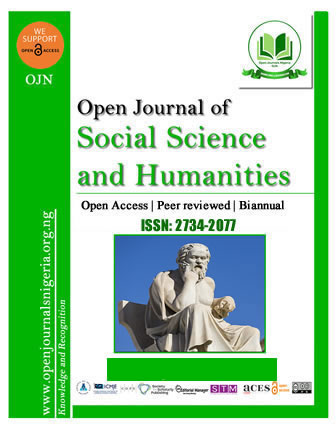AN EVALUATION OF SOCIO-ECONOMIC IMPLICATIONS OF CLIMATE-INDUCED DISPLACEMENT IN NIGERIA
DOI:
https://doi.org/10.52417/ojssh.v6i1.796Keywords:
Climate, Displacement, Evaluation, Implications, Socio-economicAbstract
With Nigeria suffering notable climate-induced displacement resulting from adverse environmental conditions and socioeconomic vulnerabilities, climate change has become a major global cause of migration and displacement. Emphasizing important ecological factors including desertification, flooding, and coastline erosion, this study assesses the socio-economic consequences of such migration in Nigeria. While congested displacement camps generate public health crises and social tensions, these events disturb livelihoods, aggravate unemployment, and lower access to education and healthcare. Using case studies from areas including the Lake Chad Basin, Niger Delta, and Benue Valley which are climate-vulnerable the study uses a qualitative research approach based on secondary data Results show that poor governance systems and insufficient policy responses aggravate the effects of relocation, therefore stressing the importance of thorough national policies and regional collaboration. This article underlines the need to include climate justice concepts, improve governance capacity, and promote worldwide cooperation to solve the underlying causes and lessen the effects of displacement. To help affected people build resilience, it further suggests investing in climate-resilient livelihoods, improving social services, and developing proactive disaster management strategies. This work offers a varied perspective that adds to the larger conversation on climate resilience and sustainable development in fragile areas.
Published
How to Cite
Issue
Section
Copyright (c) 2025 Erondu

This work is licensed under a Creative Commons Attribution-NonCommercial 4.0 International License.





















